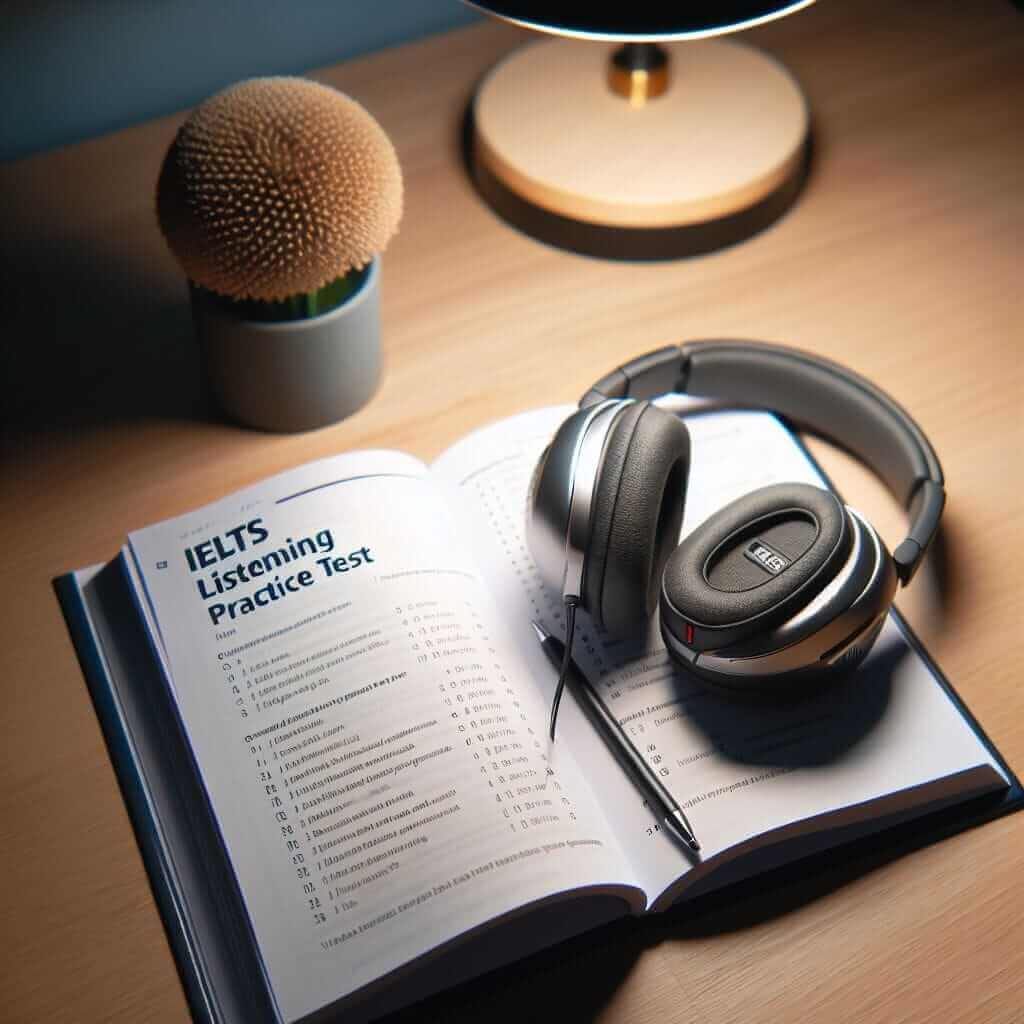The Importance of IELTS Listening and Achieving a Band 8
The IELTS Listening test is designed to assess your ability to understand spoken English in a variety of accents and contexts. Achieving a Band 8 in this section signifies that you have a superior command of English listening skills, allowing you to understand complex and nuanced language in academic and everyday settings. This accomplishment can be instrumental in gaining admission to top universities or securing desirable employment opportunities.
Key Strategies for Boosting Your Score
1. Master the Art of Active Listening
Passive listening won’t get you to Band 8. You need to engage actively with the audio:
- Predict: Before each section starts, look at the questions and anticipate what kind of information you need to listen for.
- Focus: Tune in to the speaker’s tone, keywords, and any changes in topic.
- Take Notes: Develop a system of shorthand and symbols to jot down key information quickly. Don’t try to write full sentences.
- Anticipate Paraphrasing: Remember that the answers in the questions may not be the exact words used in the recording. Listen for synonyms and paraphrases.
2. Develop a Keen Ear for Different Accents
The IELTS Listening test exposes you to a range of native English accents. Familiarize yourself with:
- North American: Listen to podcasts or watch news channels from Canada and the USA.
- British: Engage with British dramas, documentaries, or radio programs like BBC Radio 4.
- Australian: Explore Australian films, TV shows, or interviews with Australian personalities.
3. Hone Your Vocabulary for a Variety of Topics
The IELTS Listening test covers a diverse range of subjects, from education and environment to technology and culture.
- Expand Your Lexicon: Regularly read English newspapers, magazines, and online articles on various topics.
- Note Down New Words: Keep a vocabulary journal and write down unfamiliar words and their definitions.
- Use Flashcards: Create flashcards to test yourself on the new vocabulary you’ve learned.
4. Practice with Real IELTS Listening Tests
Familiarizing yourself with the test format is crucial:
- Use Official Practice Materials: Utilize the Cambridge IELTS books and online resources from the official IELTS website.
- Analyze Your Mistakes: After each practice test, carefully review your answers, identify your mistakes, and understand why you made them. This will help you avoid repeating the same errors in the real exam.

Example from an IELTS Listening Test
Let’s look at a sample question from an IELTS Listening Section 3 conversation:
You hear two students discussing a presentation they have to give.
Question: What is the main problem the students identify with their presentation?
- A. lack of visual aids
- B. insufficient research
- C. poor time management
Extract from the audio:
Student 1: “I’m a bit worried about the presentation next week. We haven’t really done enough research yet.”
Student 2: “I know, we’re really behind schedule. We need to focus on getting the content right before we even think about slides or anything.”
Answer: The correct answer is B. insufficient research. The students clearly state that they haven’t done enough research, which is directly related to the content of their presentation.
Additional Tips to Enhance Your Listening Skills
- Listen to English Daily: Make English audio a part of your routine. Listen to podcasts, music, or audiobooks during your commute or while doing chores.
- Improve Your Concentration: Find a quiet space where you can focus fully on the listening material. Minimize distractions.
- Don’t Be Afraid to Guess: If you miss a question, don’t dwell on it. Move on and focus on the next one. Make an educated guess if needed.
- Be Patient and Persistent: Improving your listening skills takes time and effort. Don’t get discouraged if you don’t see results immediately. Keep practicing consistently, and you will gradually see progress.
Conclusion
Achieving a Band 8 in IELTS Listening requires dedicated effort and a strategic approach. By mastering the art of active listening, familiarizing yourself with different accents, expanding your vocabulary, and practicing regularly, you can significantly enhance your listening skills and boost your confidence for the exam. Remember, consistent effort and targeted practice are key to achieving your desired score.